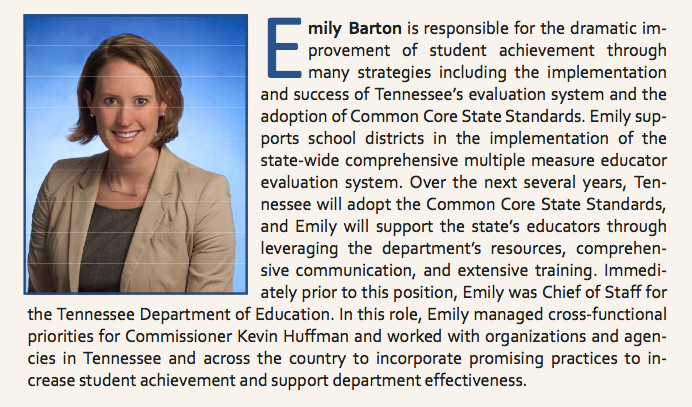Or, what a progressive Karl Dean might have said at yesterday’s Nashville Chamber education report card “party.” If you’d like to read his defense of charter schools and warning to MNPS, read this.
Nashville Mayor Karl Dean yesterday took on the education establishment and challenged the city to do more for its children and families. The remarks came as stunned members of the Nashville Area Chamber of Commerce looked on in disbelief.
Dean first suggested that Metro Nashville Schools stop its over-reliance on testing in spite of state mandates. He noted the practice of data walls as emblematic of the current emphasis on test-based measures of student success and suggested that the schools might try focusing on the whole child.
With his voice raised and fist clenched, Dean said, “Dr. Register, tear down those data walls.”
Dean seemed to be suggesting that School Board member Amy Frogge has a point when she continues to ask about how much all the spending and preparation for tests costs Metro Schools.
He further added that a teacher’s value is about more than the points she might add to her students’ test scores.
Dean proceeded to challenge the popular and oft-repeated notion that Nashville is home to failing schools.
“It’s not the schools that are failing,” Dean said. “MNPS teachers work hard every single day to reach the children in their care. But too many of those students arrive hungry and without access to health care or basic shelter. It’s our community that has failed the families of these children.”
Dean noted that nearly 3 of every 4 MNPS students qualifies for free or reduced price lunch. He went further to note that 7500 Davidson County families with school age children earn incomes below the federal poverty line (Source: American Community Survey of the U.S. Census).
“We’re simply not supporting the ENTIRE community,” Dean said. “When so many families are working hard and can’t make ends meet, there’s a fundamental problem in the local economy. Rising income inequality is bad for Nashville. We must work to address it together now.”
Dean pledged to push for changes in state law to allow Nashville to adopt a living wage and also pledged to use his considerable clout with the General Assembly to advocate for a $10 an hour state minimum wage.
“When Nashville families are struggling, their children struggle,” Dean said. “It’s hard to focus on school when you don’t know where your next meal will come from or what to do when you can’t see to read and can’t afford glasses.
“Quite simply, Nashville must do a better job of reaching out and lifting up all our citizens.”
Dean said he would work with the staff at Music City Center to turn the nearly $600 million facility into a community center and transitional housing for the working poor. He noted that it would include free dental and vision clinics for children and an urgent care center for basic medical needs.
“This facility will set Nashville apart as a city that puts people first and will no longer fail its children and families.”
Dean also said he will be asking Metro Council to expand the hours at all the city’s libraries so students can have access to its materials and computers.
“Our children need consistent, reliable access to our magnificent library facilities. They should be centers of learning and excitement and they will be open to serve that need.”
Following Dean’s speech, he walked to the park across from the downtown library to meet the homeless men and women he’d be spending his nights with until January, when he’ll take them to their new rooms at MCC.
Alas, Dean’s actual remarks are chronicled here.
